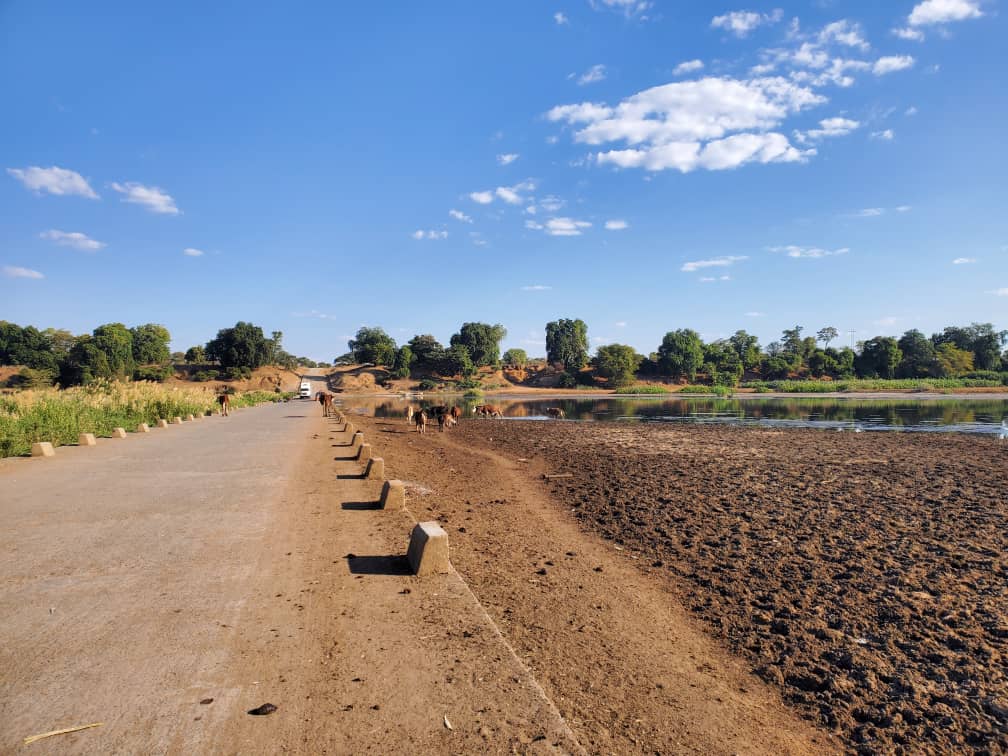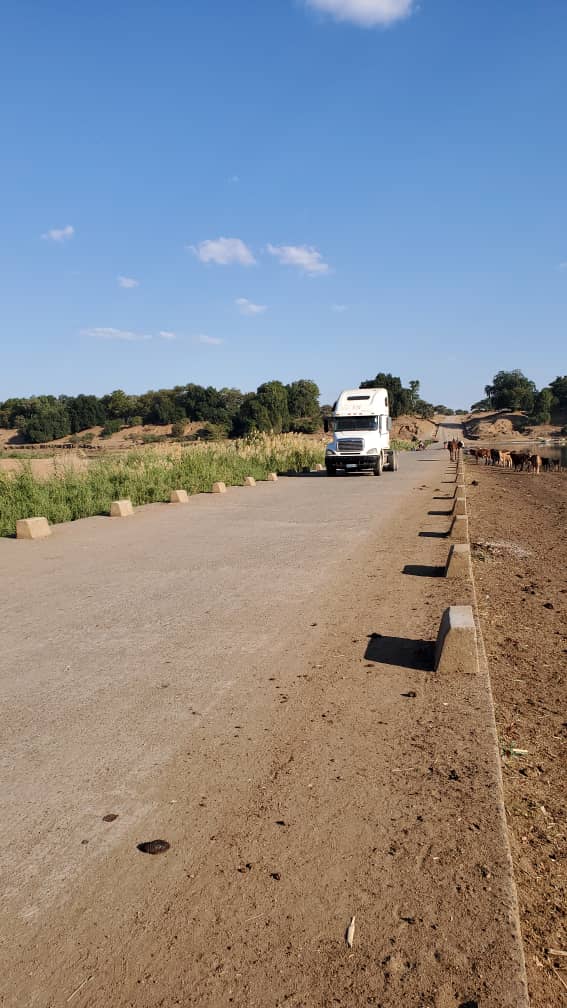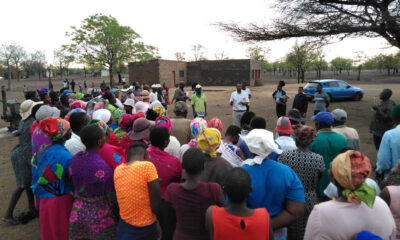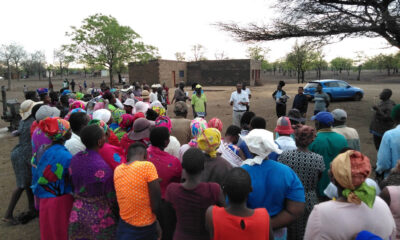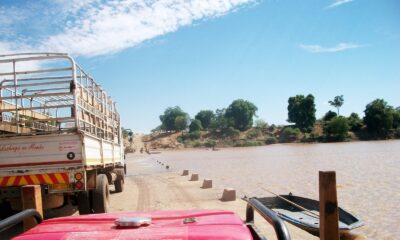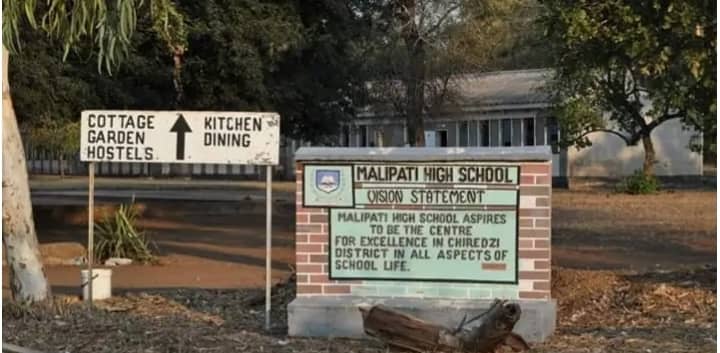
News
Chiredzi South relegated to the Dark Ages by uncaring govt
Obviously as government something called social exclusion is something which could be perceived, depending on who will be talking about it.
Published
1 year agoon
By
NewsHawksMORRIS BISHI
PEOPLE in some parts of Chiredzi South depend on mobile networks and broadcasting services from neighbouring Mozambique and South Africa, which has left many convinced that the government has relegated them to the shadows as it perpetuates colonial practices.
Smuggling has become a way of life for many, while several roads are impassable.
In addition, these rural citizens live on the edge of the chair because, anytime, government may kick them out of their ancestral land to pave way for a project which will benefit cattle for the rich.
This is not a modern-day Wilbur Smith script. The description relates to the Shangani people of rural Chilonga and surrounding areas in Chiredzi South in Masvingo province.
Poor mobile network coverage and elusive airwaves sever connection to the world, isolating communities and stifling opportunities.
Poverty’s suffocating grip is evident for all to see. Limited access to healthcare condemns people to premature death. Crumbling and distant educational facilities as well as an acute shortage of teachers dash many dreams of escaping poverty, trapping generations in a cycle of despair.
In areas like Chilotlela, Davata, Madzanda and others near Sango Border Post people rely on cellphone networks from Mozambique and South Africa. This is the case even in emergencies.
The dependency on foreign networks means locals cross the porous border to buy airtime and data bundles which they then resell in their villages.
Relying on foreign networks however has huge disadvantages, some of which are fatal.
Lives are at stake
Susan Mazinyani from Chilotlela told The NewsHawks that her relative lost a baby because of the poor network.
She said during that emergency they had to use a Mozambican signal to call for help, but it was unavailable.
“Some years back we lost a baby after a relative had complications with her pregnancy. We used a sim card with Mozambican reception to call for help but it was not connecting and when we succeeded after many hours, it was too late. She lost the baby,” said Mazinyani.
Brighton Baloyi, who lives on a farm near Sango Border Post said, he has been using a Mobitel line from Mozambique since 2015. He uses the service provider for both calls and internet connection.
He buys rechargeable cards from villagers who illegally cross into Mozambique to buy goods for resale back home.
“I have been using a Mozambican line for almost nine years now and it is reliable and cheaper as compared to charges being charged by local providers, in the limited areas where there is connectivity. I have no choice since local networks have poor reception in my area,” said Baloyi.
Nyeleti Luvani from Davata said she is finding it harder to speak to relatives in Zimbabwe due to high charges although it is easier for her to speak to her husband and relatives in South Africa.
“My phone is always online since I use an MTN line whose data charges are cheaper than local service providers. I usually find it difficult to connect with relatives in Chiredzi or Harare than speaking to those in South Africa especially my husband whom I can speak with even on data calls,” said Luvani.
Meanwhile, in distant boardrooms, people donning suits and neckties deliberate on the fate of residents of Chilonga and parts of Chiredzi South. Their decisions are shaped by interests and agendas far removed from the dusty realities of a rural life, setting the stage for a showdown between the tradition and progress, community and commerce.
Chilonga is an area located in the south-eastern part of Zimbabwe, near Chiredzi town. It has a complex history. Originally inhabited by the Karanga people, a sub-group of the Shona, the area was designated as a native reserve by the British colonial authorities, leading to forced relocations and land expropriation.
A fraught history
The Shangani people, also known as the Tsonga or Hlengwe, were the residents of the present-day Gonarezhou National Park before their eviction by the colonial government after the area was declared a game reserve in 1934. The declaration kick-started forced evictions of the Shangani communities from their ancestral land to create space for the game park.
The displacements were implemented by enforcing racially guided land alignment that followed the promulgation of the discriminatory Land Apportionment Act in 1930.
Gonarezhou is Zimbabwe’s second-largest National Park and one of its most famed wilderness areas. It stretches 5 053 square kilometres, covering 1.25 million acres, from the Save River in the north to the Mwenezi River to the south. The park is home to some of the most spectacular landscapes in southern Africa – including the iconic Chilojo Cliffs.
In the 1960s, they were forcibly evicted from their territories in Chiredzi to create space for the establishment of the Triangle and Hippo Valley sugarcane estates. They relocated to Chilonga.
In February 2021, the government served Chilonga residents with an eviction order to pave way for a lucerne grass project by Dendairy, a private dairy company. A total of 2 258 households and around 13 840 people faced eviction.
An investigation supported by Information for Development Trust (IDT), a non-profit media organisation promoting investigative journalism in Zimbabwe and the Southern African Development Community, revealed that social exclusion has affected the lives of the Shangani people in Chilonga and most parts of Chiredzi South, leaving deep scars across generations.
The denial of basic rights and opportunities has perpetuated cycles of poverty. The lack of access to quality education and healthcare has resulted in widespread illiteracy, early child marriages, child labour and family disintegration, as parents leave the country for greener pastures.
Community leaders say the poor road network in Chiredzi South is testament of the community’s neglect. Many areas cannot be reached, especially during the rainy season.
In 2000, Cyclone Eline caused severe damage to Chilonga Bridge at Runde River which connected Chiredzi with Chilonga, Chikombedzi, Malipati and Sango Border Post. The bridge is yet to be replaced despite several promises by government officials. A small causeway bridge at the site has claimed lives during rainy seasons. In 2022, a total of 14 people were swept away while trying to cross the river.
A neglected community
Headman Ngwenyeni, born Kennias Mukachana of Malipati, told The NewsHawks that there are various issues relating to development and social services which local leaders have been raising with government officials. He said their pleas have fallen on deaf ears.

“You are lucky to talk to me over the phone, network is poor and there is no access in many areas. Most people are using Mozambican or South African cellular networks. It is easy that way than accessing our own. We travel for more than seven kilometres to a nearby clinic from our area and the roads are not being attended to. Since Independence, we are yet to access transmission for local radio stations; we are listening to stations from Mozambique and South Africa. People from this side are not in touch with what is happening in our country in terms of news and other developments. We raise these issues every time we meet authorities, but we are not seeing the answers since nothing is improving,” he said.
Auspicious Ndlovu, founder of Community Initiatives for Sustainable Development Trust (CIFOSUDE), a community organisation based in Chiredzi South focusing on initiatives to promote sustainable development, told The NewsHawks Chiredzi South is marginalised.
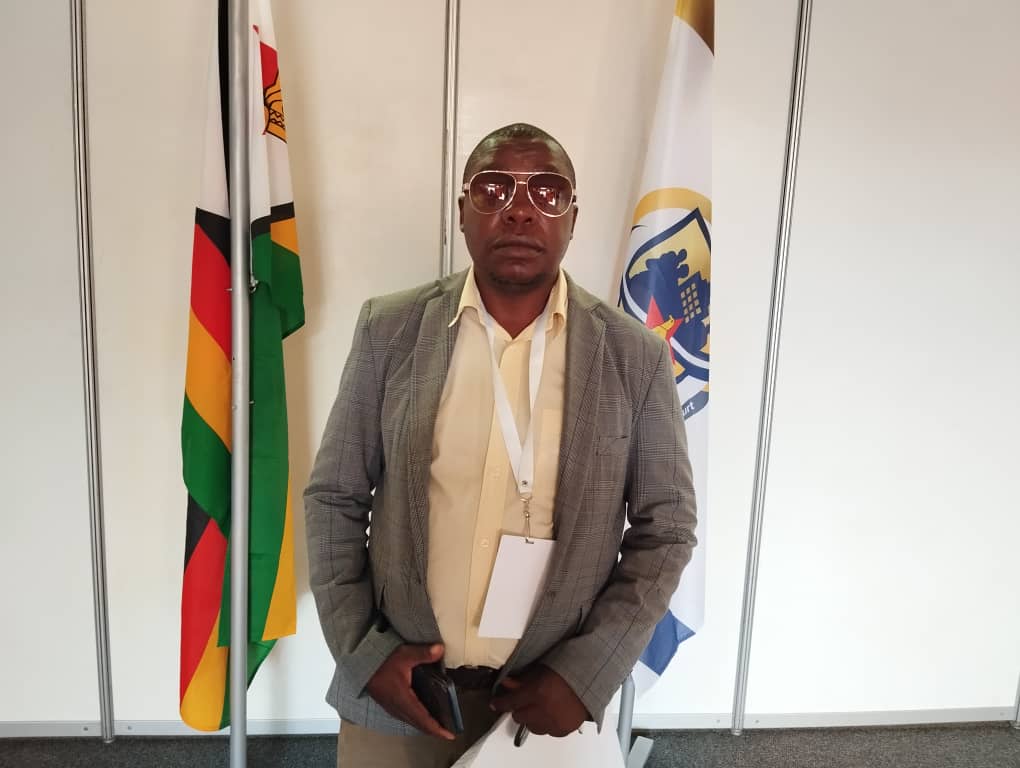
“We have various problems including road network, communication and other services. People are feeling that they are being ignored maybe because our area is in the border area. About 70% of our area does not have network connectivity. People are using South African network (MTN) and Mobitel from Mozambique and with high numbers of stocktheft we are having challenges to communicate with others over this issue. Education is also another challenge; it is a problem which started during the era of our ancestors and many look for employment just after Grade 7 since schools are faraway,” Ndlovu said.
“Our health facilities are few, considering the distances people travel to access a clinic. For example, someone in Chigalo walks to Rutandare and someone from Mhlekwane walks to Dumisa and these distances are more than 10 kilometres. This is unbearable for someone who is sick. Due to lack of a bridge to connect us with Chiredzi, during rainy seasons, we travel to Chiredzi via Rutenga from areas such as Gezani, which is almost 300 kilometres.
“Social ills are rampant in our area, mostly child marriages and early pregnancies, due to shortage of normal services like education which are better in other rural areas.”
Esther Mungoni from Vhelemu area said women were bearing the brunt of the lack of development.
She said during rainy seasons, accessing Chiredzi Hospital becomes extremely challenging, forcing many to risk their lives by crossing the flooded Runde River in makeshift boats.
She shared a personal experience where her sister-in-law gave birth in a boat, surrounded by men, in a humiliating and dangerous situation.
“The struggle to access healthcare in our community is a matter of life and death. As I have witnessed firsthand, expecting mothers are forced to risk their lives by crossing the flooded Runde River in makeshift boats, just to reach Chiredzi Hospital. It’s a harrowing experience that’s both humiliating and dangerous. I recall the traumatic incident where my sister-in-law gave birth in a boat, surrounded by men, in the middle of the river,” said Mungoni.
A Zanu PF councillor who requested anonymity said it was a shame that Chilonga Bridge has not been repaired, many years after destruction.
He said the community felt the government was deliberately neglecting the area.
“Chilonga Bridge was damaged in the early 2000s and we witnessed other disasters since that time and as locals we are still asking the whereabouts of the emergency response funds for Cyclone Eline. A lot of infrastructure was damaged during that disaster but there was nothing done to address these damages. Electricity at Malipati Business Centre developed a fault in 2020 and the fault is yet to be rectified, four years later. This shows the extent to which we are being neglected,” said the councillor.
Cyclone Eline was the second longest-lived cyclone in the Indian Ocean, which travelled over 11 000 km during its 29-day track through the Indian Ocean in February 2000. The cyclone formed on 1 February 2000, and caused severe damage in several southern African countries including Mozambique and Zimbabwe before dissipating over eastern Namibia on 29 February.
Children denied education
Chiredzi Rural District Ward 6 councillor in Chilonga Happie Chikutu said people in Chiredzi South are surviving under harsh conditions.
He said shortage of educational facilities is affecting the standard of living in his area.
Chikutu said in his ward there is only one school at Chambuta, resulting in children travelling more than 15 kilometres to school.
“People are surviving, but they are living in poverty. Secondary school is the biggest challenge, with children travelling between 18 to 30km to a secondary school every day. Lack of basic education is the driver of poverty and this is causing dropouts since children are dropping out after Grade 7. In my ward there is only one clinic at Chambuta and if you look at a distance from Chikovo to Chambuta the distance is over 20km. We only have a single network booster at Vhelemu and Chambuta. After primary level at 12 or 13 years, many children are entering into early marriages because they have nothing to do. Our area is behind in terms of development and that is being caused by lack of social services,” said Chikutu.
Kettie Mukachana from Chibwedziva said children are facing a significants setback in their education due to the lengthy distances to school.
She said most children are starting their education at the age of 7, two years or more after their peers in other areas to allow them to have the stamina to walk long distances.
“The delayed start to their education has far-reaching consequences. If a child starts ECD A at six years or seven years then what can we expect in terms of educational success from that child. They cannot cope or compete with children who start learning early, and this leads to school dropouts,” said Mukachana.
Marginalised, excluded, forgotten
Community Tolerance Reconciliation and Development (Cotrad) director Zivanai Muzorodzi said the Shangani-speaking people of Chiredzi South bear the scars of social, political and economic exclusion.
He said the pending forced evictions of Chilonga people to pave way for Lucerne production will disrupt their livelihoods, cultural practices and identity, indigenous knowledge, land rights and other human rights.
“Shangaan-speaking people bear the brunt of social, political and economic exclusion. Economically, a few of them possess sugarcane plots distributed during the land reform and the recent Kilimanjaro project despite being evicted from the area way back. Most parts where the Shangaan people reside in Chiredzi are remote and there are no well-connected road networks, airwaves and basic amenities. Lack of information negatively impacts on their access to information which could enhance their informed political participation,” Muzorodzi said.
“There are profound challenges in getting Zimbabwean radio and television waves in some parts of Chiredzi South covering Boli Mhlanguleni, Chilonga, Malipati, Davata, Gezani and others. The disconnection from national broadcasting deprive them accessing information which is vital in enhancing their political horizon which is critical just like any other citizens.”
Smuggling is rife
Tsakani Chauke, who comes from Chilonga, said he is surviving on smuggling goods from South Africa through an illegal point at Chikwalakwala area. He said since he failed to access education, he has resorted to smuggling for a living. During the rainy season when the Limpopo River is impassable, he survives on operating an illegal boat service, ferrying people across the Runde River at Chilonga.
“My homestead is faraway from a secondary school, so after finishing my Grade 7, I ventured into smuggling, which is the business most of my brothers are doing. It is risky, but I am happy that we are able to manage security officers manning the border area. We bring in various goods to Chiredzi and this business is paying us. I got married at 14 after leaving school. We bring in various goods, especially groceries, supplying shop owners in Chiredzi South and our local town. This is what most of us are doing, others are working on South African farms and they don’t use legal entry points since they do not have passports.
“When the river is impassable, we move to Chilonga causeway Bridge where we use boats without engines to transport people across for a fee. We also transport goods and even dead bodies across Runde River and on a day we make a lot of money, enough for our families to survive. This is what we are doing to survive.”
Miriam Mbalati, a single mother from Gezani said her business at Malipati Business Centre is thriving since she is hoarding cheaper goods from those who are into smuggling goods into the country through an illegal crossing point at Chikwalakwala.
She said it is cheaper to buy from the dealers than buying from Chiredzi which is far and expensive.
“The buses to and from Chiredzi travel according to timetables. If you arrive in Chiredzi after lunch hour you should look for alternative accommodation since it will be difficult to get transport to our area. We are buying from those into illegal cross border trading and this is making a difference and my small business is thriving,” said Mbalati.
According to a masterplan released by Chiredzi Rural District Council in 2023, a total of 3 920 pupils dropped out of school due to various reasons, including the long walking distances, unavailability of secondary schools, non-payment of fees and lack of interest.
Eighty percent of the dropouts are secondary school learners. Of this number, 2 060 are girls. Seven wards within the district do not have secondary schools at all, with some learners forced to travel for more than 20kms to the nearest secondary school.
“While the country has made significant strides in achieving universal education, key challenges remain in the access to quality, equitable and inclusive education across Chiredzi district as mentioned by community members and stakeholders during consultation meetings. Attention was directed to broad access and participation to quality, equitable and inclusive education by disenfranchised populations that are found in rural Chiredzi,” the masterplan says.
“There are only 148 primary schools against the existing 48 secondary schools in Chiredzi rural. This indicates a shortage of secondary schools within the district. Seven wards within the district do not have a secondary school at all. Some learners proceeding from primary school to secondary school are forced to travel over 20km to the next secondary school which will be outside their ward. Some end up dropping out of school. Of the 48 secondary schools, only four secondary schools offer Advanced Level studies. There is only one boarding school in the district.
“The challenges in education have also created a conducive environment for sexual abuse, teenage pregnancies and child marriages in girls. Most girls are exposed to abuse during school days, especially those travelling to school early and coming back late and also during their stay in bush boardings. There is need for establishment of girl-friendly schools and increasing the number.”
Shortage of schools
In all wards, both primary and secondary some learners walk more than five kilometres to the nearest school. Early childhood development (ECD) pupils also walk such long distances. The masterplan reveals that in ward 13, secondary school learners from areas like Masukwe and Pahlela attend school at Alpha Mpapa (Chikombedzi) and Malipati High which is more than 20km .
“In addition to inadequate infrastructure there is serious shortage of furniture and learning equipment within schools. Most schools in rural areas are not electrified despite Zimbabwe’s NDS 1 [National Development Strategy] emphasis on Stem-focused education as a response to the country’s needs for innovation, industrialisation, and creation of wealth for all, especially girls and women. Most schools do not have laboratories for science subjects. Therefore, all schools should have at least solar-powered laboratories and adequate learning equipment,” the report says.
The majority of health facilities in the area have inadequate infrastructure. Most health facilities do not have a shelter for waiting mothers, inconveniencing expecting mothers.
“On the existing health facilities there are no admission rooms which are necessary and prompt people to seek medical attention in bigger hospitals which are faraway. Unavailability of disability-friendly infrastructure and trained personnel at health centres for disabilities also widens the gap for access to health. Availability of essential medicines and medical supplies remains a challenge. Unavailability of pharmacies also adds to the above-mentioned challenges,” the masterplan says.
“Members of the community suffering from chronic diseases like diabetes, hypertension, asthma and others find it difficult to access their medication every month. The general population of the wards also suffer the same challenges, especially when they fail to secure any medication from the local health facilities. People are forced to travel long distances to secure medication from pharmacies in Chiredzi Town.
“Chiredzi rural has a total of 38 health facilities. The number of hospital facilities is very low as compared to the population they serve. There are 11 wards without health facilities and all rely on health facilities in neighbouring wards which are very far in most instances.”
Arrested development
Malipati Development Trust chairperson Lawrence Moyo said the poor road network makes it difficult for development partners to access the local areas.
Chief Chilonga, born John Ben, said his people are facing many challenges, especially connectivity to Chiredzi during rainy seasons as well as shortage of mobile network boosters. He said his area is drought prone and is happy that the government is trying, through drought relief programmes, to alleviate hunger.
“We are having challenges as people of Chilonga. We cannot generally say government is neglecting us, but from the programmes being undertaken we can say they are trying to address some of the challenges we are facing. It is true that unavailability of a bridge across Runde is causing deaths annually during rainy seasons, but we are hoping the problem is going to end since government is taking action. Network connection is another challenge and people are moving from place to place to search for network so that they can communicate with their relatives. Child marriage is a cancer which should be treated and we hope government will mobilise resources to address issues, especially educational facilities, so that our children can be occupied,” said Chief Chilonga.
Chiredzi district development coordinator Lovemore Chisema said the government is aware of the challenges being faced by residents of Chiredzi South.
He said the government is making efforts through devolution funds to address challenges in education and healthcare in the area. There are plans to replace Chilonga Bridge and as a district they are waiting for allocation of funds from central government, he said.
“Obviously as government something called social exclusion is something which could be perceived, depending on who will be talking about it. Nevertheless, we appreciate that there are areas which are behind; that’s why government efforts are talking about devolution and on planning we are targeting infrastructure development in those areas. The Chilonga Bridge is in government plans and it’s all about availability of funds. If you look at the masterplan for Chiredzi RDC, it is targeting improvement of educational and health facilities in Chiredzi South,” said Chisema.

